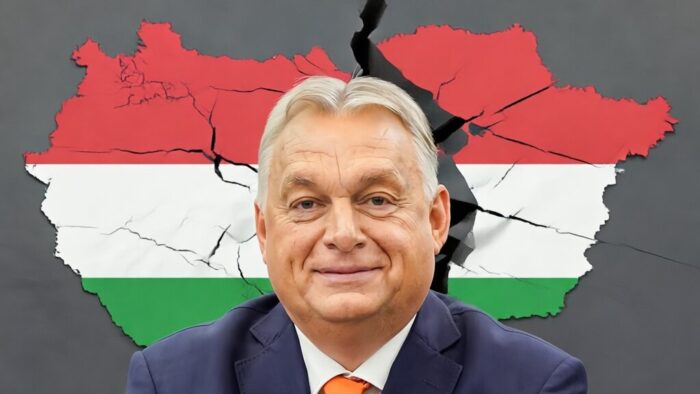Viktor Orbán’s anti-war roadshow has launched as the Hungarian prime minister transforms opposition to European support for Ukraine into his central campaign message. On 15 November 2025, The Guardian reported that Orbán kicked off a week-long series of rallies scheduled for five cities before the year’s end, positioning “peace” as the core narrative for Fidesz’s re-election bid ahead of the April 2026 elections. The article begins:
Hungary’s prime minister has kicked off a weeks-long “anti-war roadshow”, turning criticism of European support for Ukraine into an early campaign message before next year’s elections. Viktor Orbán is scheduled to stage an event in five cities before the end of the year, and started with an assembly on Saturday in the north-western city of Győr. “Those who want peace will join us,” the rightwing leader of the Fidesz party said in a Facebook post before the event. The series of rallies began a week after Orbán’s visit to Washington DC, where he met Donald Trump, who agreed to grant Hungary a one-year exemption from US sanctions on importing oil and gas from Russia. The agreement was seen as a boost for Orbán, who has been in power for 15 years, during uncertain economic times for the country. According to insiders, another of Orbán’s priorities for the trip was to persuade Trump to visit Hungary for a meeting with the Russian president, Vladimir Putin, with whom Orbán has maintained ties, despite anger from other European governments.
Read more: https://www.theguardian.com/world/2025/nov/15/viktor-orban-hungary-2026-election-campaign-fidesz
Key Points
- Orbán launched a multi-city roadshow positioning opposition to Ukraine support as the central campaign message for the April 2026 elections.
- The roadshow follows Orbán’s Washington meeting with Trump, who granted Hungary a one-year exemption from Russian oil and gas sanctions.
- Opposition leader Péter Magyar’s Tisza party currently leads Fidesz by seven percent in independent polling conducted by Electoral Geography.
- Analysts question whether Hungary’s foreign policy messaging will overcome voter concerns about inflation, healthcare failures, and problems with the education system.
Viktor Orbán’s Hungary: Operational Hub of the Global National Conservative Alliance
Viktor Orbán’s Hungary has emerged as the operational center of a transnational coalition uniting right-wing forces across Europe and the United States under shared principles of national sovereignty, cultural identity, and opposition to supranational governance. The Hungarian prime minister launched Patriots for Europe in June 2024 alongside Austria’s Freedom Party and the Czech ANO movement, rapidly assembling a parliamentary bloc that became the European Parliament’s third-largest grouping with parties from 14 member states representing over 15 million voters. This alliance includes Marine Le Pen’s National Rally, Matteo Salvini’s League, and Geert Wilders’ Party for Freedom, forming what one analysis calls “a rearguard action in the battle for Western civilization” that seeks to reshape European governance around national borders, Christian heritage, and resistance to Brussels federalism.
Beyond electoral coalition-building, Orbán has constructed an influence infrastructure centered on the Mathias Corvinus Collegium, which received over €6 million in Hungarian government funding to establish operations in Brussels aimed at “influencing European policymakers.” The institution hosts American conservative figures while disseminating anti-LGBTQ propaganda aligned with Russian-style messaging, serving as what analysts describe as a bridge between European and American conservative movements. This network operates through events like CPAC Hungary, where Donald Trump, Tucker Carlson, and Mark Meadows have appeared alongside Hungarian officials to exchange tactics for institutional capture and media control.
The alliance operates through shared authoritarian tactics that Orbán pioneered and American conservatives now replicate, including systematic targeting of civil society organizations through sovereignty protection measures and weaponization of regulatory frameworks against media critics. Although Russia initially sought to lead this ideological coalition centered on opposition to global institutions, the Ukraine war diminished Moscow’s role while elevating Hungary’s position as what analysts identify as a platform for potential Russian information warfare operations within Western political discourse. The movement continues to expand through coordinated rallies, where Orbán, Le Pen, and other leaders reject Brussels’ transformation of Europe into provinces of an empire, instead demanding sovereignty under national flags while denouncing migration policies they characterize as civilizational threats to Christian Europe.
External References:
• To survive, Orban is plotting a far-right takeover of Brussels
• CPAC comes to Europe as alliance between Trump White House and international right grows
• Why Hungary inspires U.S. conservatives and populists
Disclaimer: The Global Influence Operations Report (GIOR) utilizes AI throughout the posting process, including the generation of summaries for news items, introductions, key points, and, often, the “context” section. We recommend verifying all information before use. Additionally, all images are generated using AI and are intended solely for illustrative purposes. While they represent the events or individuals discussed, they should not be interpreted as real-world photography.











